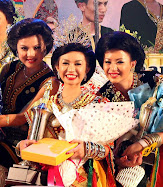 "I am a fighter, a revolutionary from tents ... I will die as a martyr at the end," he said.In a televised speech, the Libyan leader was clearly angry and blames youths inspired by regional events for uprising and vows to die a 'martyr'.
"I am a fighter, a revolutionary from tents ... I will die as a martyr at the end," he said.In a televised speech, the Libyan leader was clearly angry and blames youths inspired by regional events for uprising and vows to die a 'martyr'. Roaring like a Tiger, he said "Muammar Gaddafi is the leader of the revolution, I am not a president to step down ... This is my country. Muammar is not a president to leave his post."on 22nd February 2011, Muammar Gaddafi, Libya's leader of 42 years, appeared briefly under an umbrella to tell viewers that he had planned on sleeping among protesters in Tripoli, the capital, but couldn't because of the rain. He looked calm.
Roaring like a Tiger, he said "Muammar Gaddafi is the leader of the revolution, I am not a president to step down ... This is my country. Muammar is not a president to leave his post."on 22nd February 2011, Muammar Gaddafi, Libya's leader of 42 years, appeared briefly under an umbrella to tell viewers that he had planned on sleeping among protesters in Tripoli, the capital, but couldn't because of the rain. He looked calm.State television then went on to broadcast video of an orchestra and singers.
However Gaddafi made another television appearance today, 23rd February 2011, on state television. This time he looked 100 times different and a thousand times angry in a pre-recorded fiery speech.
Gaddafi, vowed to fight on and die a "martyr", calling on his supporters to take back the streets from protesters demanding his ouster, shouting and pounding his fist in a furious speech.
Gaddafi, clad in brown robes and a turban, spoke on Tuesday evening, 22nd February 2011, from a podium set up in the entrance of a bombed-out building that appeared to be his Tripoli residence hit by US air raids in the 1980s and left unrepaired as a monument of defiance.
"I am a fighter, a revolutionary from tents ... I will die as a martyr at the end," he said.
"Muammar Gaddafi is the leader of the revolution, I am not a president to step down ... This is my country. Muammar is not a president to leave his post."
"I have not yet ordered the use of force, not yet ordered one bullet to be fired ... when I do, everything will burn."
He called on supporters to take to the streets to attack protesters. "You men and women who love Gaddafi ...get out of your homes and fill the streets," he said.
"Leave your homes and attack them in their lairs ... Starting tomorrow [Wednesday] the cordons will be lifted, go out and fight them."
Gaddafi said "peaceful protests is one thing, but armed rebellion is another".
He urged all young men to immediately "form local committees for popular security", telling them
to wear a green armband to identify themselves. "The Libyan people and the popular revolution will control Libya."
The speech, which appeared to have been taped earlier, was aired on a screen to hundreds of supporters massed in Tripoli's central Green Square.
At times the camera panned out to show a towering gold-coloured monument in front of the building, showing a fist crushing a fighter jet with an American flag on it - a view that also gave the strange image of Gaddafi speaking alone from behind a podium in the building's dilapidated lobby, with no audience in front of him.
Speech highlightsShouting in the rambling speech, Gaddafi declared himself "a warrior" and proclaimed: "Libya wants glory, Libya wants to be at the pinnacle, at the pinnacle of the world".
The Libyan leader alleged that all of those who were protesting against his rule were "drugged", and called on people to capture them and bring them "to justice", and not to back down from "cleans[ing] Libya house by house" unless of the protesters surrendered.
Gaddafi warned that instability in his country would create an opportunity for extremist elements, saying that it would "give al-Qaeda a base".
He also warned that he could resort to using extreme force against opposition in the cities of Derna and Bayda, citing examples of the use of state force in Russia and China as times when the international community did not interfere.
Gaddafi offered a new constitution to citizens, starting from Wednesday, 23rd February 2011, but asserted that the constitution would only come into effect through dialogue.
He blamed the uprising on Islamists who wanted to "create another Afghanistan", and warned that those in Bayda and Derna had already set up an Islamic Emirate that would reach Benghazi, the country's second largest city where hundreds have been reported dead in recent violence.
He said that the country's youth was drugged and did not know anything; they were following the Islamists' leader and their leaders would be punished with death in accordance with the Libyan law.
Just hours after Gaddafi's speech, Libya's interior minister, General Abdul-Fatah Younis, announced his resignation and support for what he called the "February 17 revolution".
In a video obtained by Al Jazeera, he was seen sitting on a desk reading a statement that also urged the Libyan army to join the people and their "legitimate demands".
Meanwhile Al Jazeera reported that several hundred government loyalists heeded Gaddafi's call in Tripoli, on Wednesday, 23rd Febraury 2011, staging a pro-Gaddafi rally in the city's Green Square.
Fresh gunfire was reported in the capital on that day, after Gaddafi called on his supporters to take back the streets from anti-government protesters.
But Gaddafi's speech has done little to stem the steady stream of defections from his side.
Libyan diplomats across the world have either resigned in protest at the use of violence against citizens, or renounced Gaddafi's leadership, saying that they stand with the protesters.
Late on Tuesday night, 22nd February 2011, General Abdul-Fatah Younis, the country's interior minister, became the latest government official to stand down, saying that he was resigning to support what he termed as the "February 17 revolution".
He urged the Libyan army to join the people and their "legitimate demands".
On Wednesday 23rd February 2011, Youssef Sawani, a senior aide to Saif al-Islam Gaddafi, one of Muammar Gaddafi's sons, resigned from his post "to express dismay against violence", Reuters reported.
Earlier, Mustapha Abdeljalil, the country's justice minister, had resigned in protest at the "excessive use of violence" against protesters, and diplomat's at Libya's mission to the United Nations called on the Libyan army to help remove "the tyrant Muammar Gaddafi".
A group of army officers has also issued a statement urging soldiers to "join the people" and remove Gaddafi from power.
In another development, Gaddafi has reportedly lost control of more cities as anti-government protests continue to sweep the African nation despite his threat of a brutal crackdown.
Protesters in Misurata said on Wednesday, 23rd February 2011 that they had wrested the western city from government control. In a statement on the internet, army officers stationed in the city pledged "total support for the protesters".
Much of the country's east also seemed to be in control of the protesters, and an Al Jazeera correspondent, reporting from the city of Tobruk, 140km from the Egyptian border, said there was no presence of security forces.
"From what I've seen, I'd say the people of eastern Libya are the ones in control," Hoda Abdel-Hamid, our correspondent, said.
She said there were no officials manning the border when the Al Jazeera team crossed into Libya.
'People in charge'"All along the border, we didn't see one policeman, we didn't see one soldier and people here told us they [security forces] have all fled or are in hiding and that the people are now in charge, meaning all the way from the border, Tobruk, and then all the way up to Benghazi.
"People tell me it's also quite calm in Bayda and Beghazi. They do say, however, that 'militias' are roaming around, especially at night. They describe them as African men, they say they speak French so they think they're from Chad."
Major-General Suleiman Mahmoud, the commander of the armed forces in Tobruk, told Al Jazeera that the troops led by him had switched loyalties. "We are on the side of the people," he said.
Benghazi, Libya's second largest city, was where people first rose up in revolt against Gaddafi's 41-year long rule about two weeks ago. The rebellion has since spread to other cities despite heavy-handed attempts by security forces to quell the unrest.
With authorities placing tight restrictions on the media, flow of news from Libya is at best patchy. But reports filtering out suggest at least 300 people have been killed in the violence.
But Franco Frattini, the Italian foreign minister, said there were "credible' reports that at least 1,000 had died in the clampdown.
For the record, Tobruk is also world-famous as the scene of utter defiance between Axis and Allied forces during World War Two in North Africa.
The Siege of Tobruk was a lengthy confrontation between Axis and Allied forces in North Africa during the Western Desert Campaign of the Second World War. The siege started on 11 April 1941, when Tobruk was attacked by an Italian-German force under Lieutenant General (later promoted to the supreme armed forces rank of FIELD MARSHALL or 5 Star General and Supreme Commander of the Armed Forces) Erwin Rommel and continued for 240 days, when it was relieved by the Eighth Army during Operation Crusader.God Bless Libya..





















































































